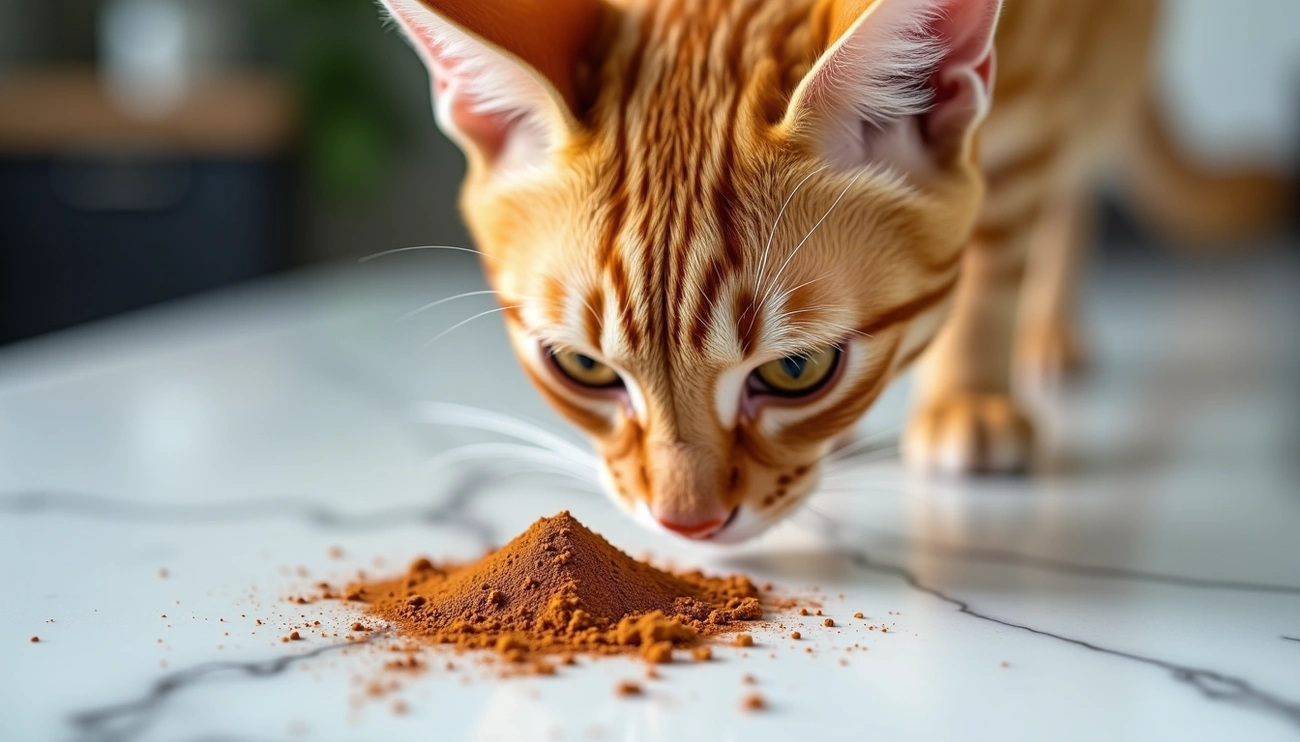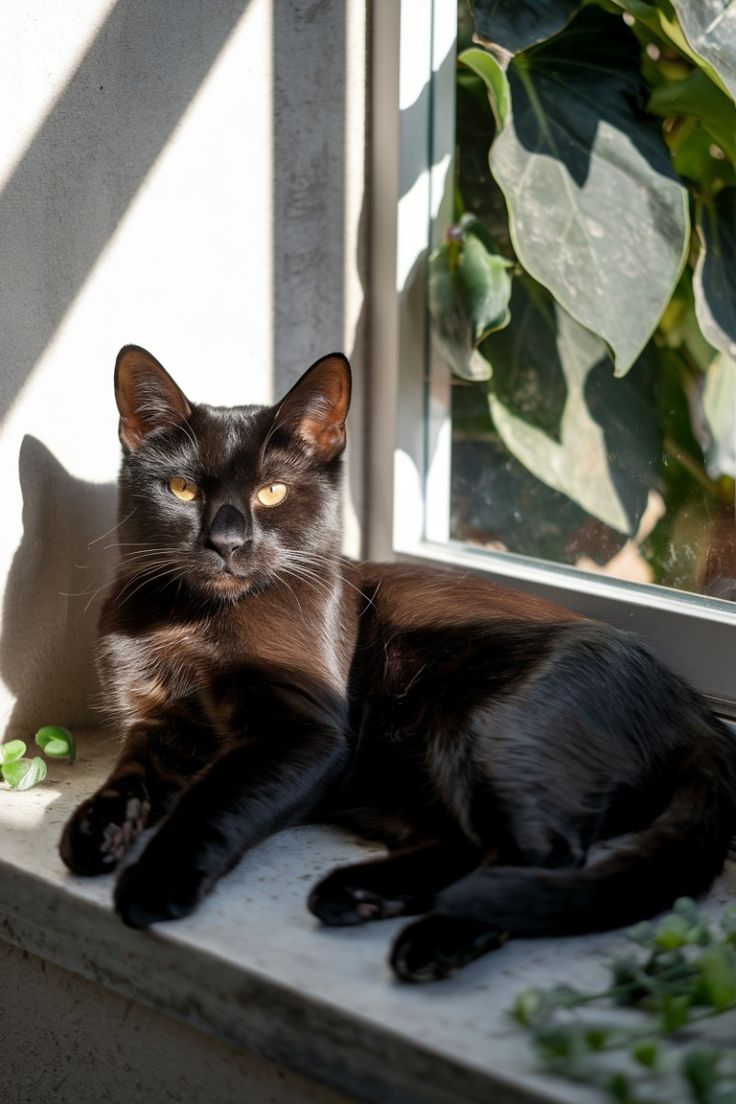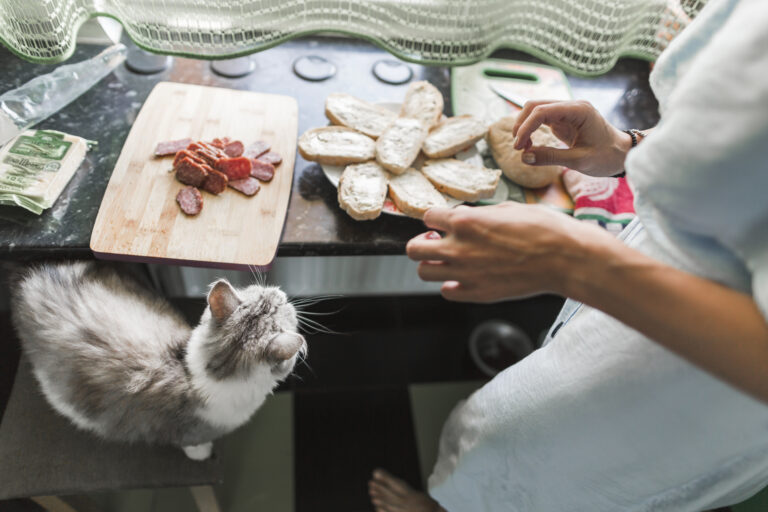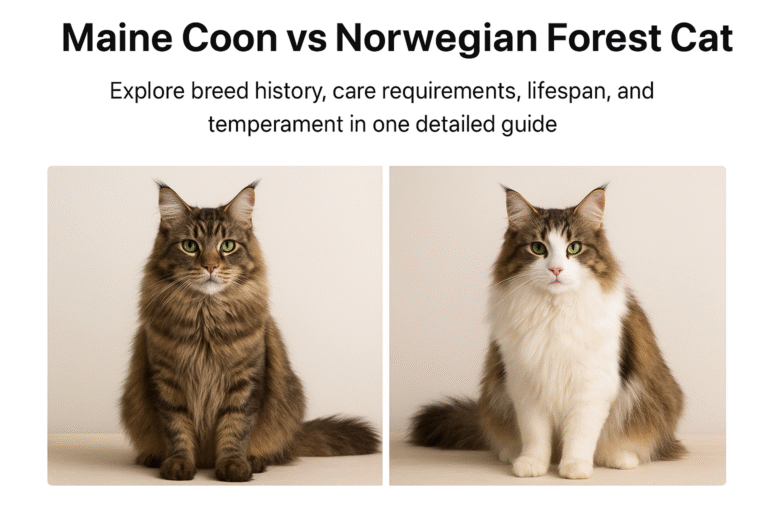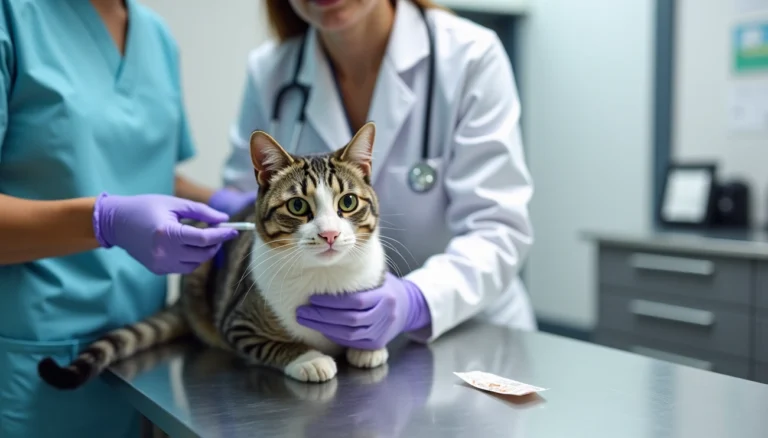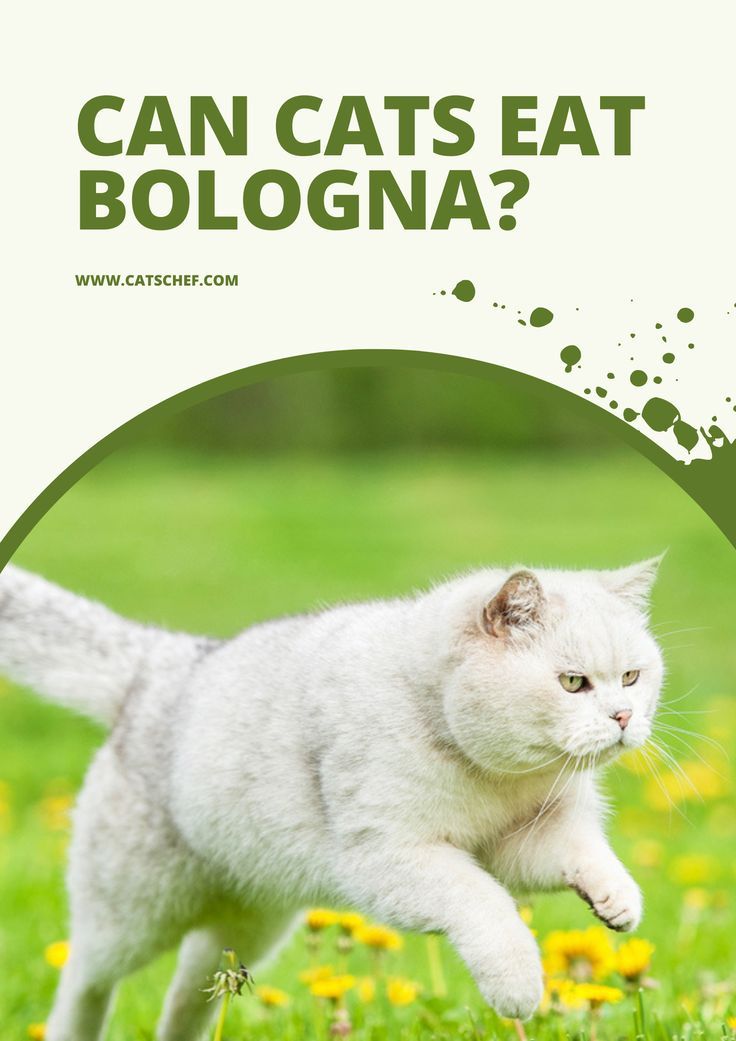Can Cats Eat Cinnamon? A Veterinarian’s Safety Guide for Pet Parents
Can cats eat cinnamon? This common kitchen spice might seem harmless, but the answer isn’t as straightforward as you might think. While cinnamon isn’t technically defined as poisonous to cats, it can still be quite dangerous for our feline companions.
The main issue is that cats lack the specific liver enzyme needed to properly metabolize cinnamon compounds. Therefore, when a cat ingests cinnamon, these compounds can build up in their system and potentially become toxic. Additionally, cinnamon contains coumarin, a natural substance that acts as a blood thinner and can prevent blood from clotting properly. Although a tiny pinch might be tolerated, larger amounts—even as little as a teaspoon—can cause significant problems for your cat.
In this guide, I’ll explain why cats are particularly sensitive to this popular spice, examine different forms of cinnamon exposure (from ground powder to essential oils), and provide clear advice on what to do if your curious kitty has an unexpected encounter with cinnamon. Understanding these risks is essential for keeping your feline friend safe and healthy.
Can Cats Eat Cinnamon?
The simple answer to whether felines can consume cinnamon is no, cats should not eat cinnamon. Despite the fact that cinnamon is technically classified as non-toxic to cats by some sources, this common spice can indeed become harmful under certain conditions.
Is cinnamon safe for cats in small amounts?
According to veterinary experts, the safety of cinnamon for cats depends largely on the amount consumed. Nonetheless, even small quantities aren’t recommended. A tiny accidental exposure to cinnamon powder might not cause immediate harm, yet repeated exposures could lead to allergic reactions. Consider this: it takes more than one teaspoon of powdered cinnamon to cause serious problems for most pets, which might seem like a lot, yet cats who walk through spilled cinnamon could ingest it simply by cleaning their paws.
Why cats are more sensitive to cinnamon than humans
Cats process substances differently than we do, which makes them especially vulnerable to cinnamon’s effects. First and foremost, cats lack the liver enzyme (glucuronyl transferase) needed to break down cinnamon compounds. Without this crucial enzyme, these compounds can build up in a cat’s bloodstream. Furthermore, cats have thinner skin than humans, allowing cinnamon compounds to be more easily absorbed. This is especially concerning with concentrated forms like essential oils.
Is cinnamon poisonous to cats or just irritating?
Rather than being strictly “poisonous,” cinnamon acts more as an irritant and potential toxin for cats. Cinnamon contains phenol, a carbolic acid that can irritate both skin and mucous membranes. Moreover, certain varieties of cinnamon—especially cassia cinnamon—contain coumarin, which is actually used as a rodenticide in high concentrations. This compound prevents blood from clotting properly and, in severe cases, can cause bleeding. Ingestion may result in vomiting, diarrhea, changes in heart rate, and even liver issues.
For these reasons, despite not being immediately lethal in tiny amounts, cinnamon should be kept away from your feline companions as a safety precaution.
Forms of Cinnamon and Their Risks
Image Source: Michelson Found Animals
Cinnamon comes in various forms, each presenting different levels of risk to your feline companion. Understanding these variations can help you protect your cat from potential harm.
Powdered cinnamon: ingestion and skin contact
Ground cinnamon might seem harmless, yet it can cause problems for your curious cat. It takes more than one teaspoon of powdered cinnamon to trigger serious toxicity in most pets. However, even smaller amounts can irritate your cat’s skin and mouth due to the phenol content, which causes redness, irritation, and sometimes burns. When cats walk through spilled cinnamon, they’ll typically groom themselves afterward, inadvertently ingesting the spice.
Cinnamon essential oil: high toxicity risk
Of all cinnamon forms, essential oils pose the greatest danger to cats. These concentrated extracts contain high levels of cinnamaldehyde, which cats cannot effectively metabolize. Even minimal exposure can lead to severe reactions including:
- Muscle weakness and unsteady walking
- Lethargy and behavioral changes
- Low body temperature
- Collapse in severe cases
Unfortunately, cats absorb essential oils approximately three times faster through their skin compared to humans, due to their thinner epidermal layers.
Cinnamon sticks and brooms: choking and irritation
Decorative cinnamon sticks and seasonal cinnamon brooms might attract your curious kitty. Chewing on these items can cause oral irritation and redness around your cat’s mouth. Besides irritation, they present choking hazards, particularly for playful kittens who might bite off pieces. Store these decorative items where your cat cannot access them.
Cinnamon candles and diffusers: inhalation concerns
Even without direct contact, cinnamon-scented products can harm cats through inhalation. Active diffusers release fine mists that cats may breathe in or that settle on their fur. Subsequently, when they groom themselves, they ingest these particles. Cats with pre-existing respiratory conditions such as asthma or allergies face particularly high risks from these aerosols.
Symptoms of respiratory exposure include coughing, sneezing, wheezing, and labored breathing. Given cats’ extraordinarily sensitive sense of smell—14 times more acute than humans—what seems pleasantly fragrant to you might overwhelm your feline friend.
Signs of Cinnamon Toxicity in Cats
Image Source: Catster
Recognizing the symptoms of cinnamon toxicity in your cat is crucial for prompt treatment. The severity of symptoms depends on the amount ingested, inhaled, or absorbed through the skin.
Digestive symptoms: vomiting and diarrhea
Gastrointestinal issues are typically the first signs of cinnamon ingestion in cats. Even small amounts can cause mild stomach upset. In more serious cases, your cat may experience persistent vomiting and diarrhea as the body attempts to expel the toxin. These digestive symptoms occur because cinnamon contains essential oils that specifically irritate a cat’s digestive system.
Skin and mouth irritation
Direct contact with cinnamon often leads to immediate discomfort. Your cat might experience redness, irritation, or even burns on their skin. Inside the mouth, cinnamon acts as a potent allergen, causing inflammation and discomfort. You may notice your cat pawing at their face, excessive drooling, or rubbing against furniture to relieve the irritation.
Breathing issues from inhalation
If your cat inhales cinnamon powder or oil, respiratory problems frequently follow. Watch for coughing, wheezing, and labored breathing. Specifically, fine cinnamon particles can cause significant airway inflammation, leading to bronchospasm in severe cases. Cats with pre-existing respiratory conditions face elevated risks from even minimal exposure.
Liver damage and blood thinning
Perhaps most concerning, cinnamon contains coumarin, which prevents blood from clotting normally. This compound can cause dangerous thinning of the blood, potentially leading to hemorrhaging in serious cases. Prolonged exposure may likewise stress the liver, eventually resulting in liver failure.
Behavioral changes and lethargy
Finally, watch for alterations in your cat’s normal behavior. Signs include unsteady walking, muscle weakness, lethargy, and frequent collapsing. In extreme cases involving large quantities, cats may develop neurological symptoms including tremors, disorientation, or even seizures.
What to Do If Your Cat Eats Cinnamon
If your furry friend has encountered cinnamon, quick action is essential. Knowing exactly what steps to take can make a significant difference in your cat’s recovery.
Immediate steps to take at home
First, remove any remaining cinnamon from your cat’s reach. Gently wipe your pet’s mouth with a damp cloth to remove residues that might cause further irritation. Offer small amounts of water, but never attempt to induce vomiting at home—this could cause additional harm as cinnamon compounds may further irritate when vomited back up. For skin contact, particularly with oils, wash the affected area with mild soap and water.
When to call the vet
Contact your veterinarian immediately if your cat has:
- Consumed a large amount of cinnamon-containing food
- Licked or inhaled cinnamon essential oil
- Shown signs of discomfort or pain
- Exhibited persistent vomiting or breathing difficulties
If your regular vet isn’t available, call the Pet Poison Helpline at (855) 764-7661 or ASPCA Animal Poison Control at (888) 426-4435.
Treatment options your vet may recommend
Veterinary treatment typically includes supportive care until the toxin passes. Your vet might recommend:
- Blood work to monitor liver and clotting functions
- Fluid therapy to support kidney and liver function
- Vitamin K as an antidote for coumarin effects
- Oxygen therapy for respiratory distress
Monitoring your cat after exposure
Keep your cat indoors for at least 24 hours for observation. Document any symptoms—including photos of skin reactions or videos of concerning breathing patterns. Watch closely for lethargy, persistent digestive issues, or yellowing skin/eyes.
Conclusion
Throughout this guide, we’ve seen why cinnamon deserves caution when cats are concerned. Although a tiny accidental exposure might not cause immediate harm, cats simply lack the necessary liver enzymes to properly process cinnamon compounds. Therefore, what seems like a harmless spice to us can become problematic for our feline companions.
Remember that different forms of cinnamon carry varying risks. Essential oils pose the greatest danger due to their high concentration, while even powdered cinnamon can cause irritation if your cat walks through it and grooms afterward. Similarly, decorative items like cinnamon sticks present both irritation and choking hazards for curious cats.
Should your cat encounter cinnamon, quick action matters. Wipe their mouth with a damp cloth, offer small amounts of water, and call your veterinarian if they’ve consumed significant quantities or show any concerning symptoms. After all, early intervention often makes a substantial difference in recovery.
Rather than testing boundaries, the safest approach remains prevention. Store cinnamon products securely away from your cat’s reach, avoid using cinnamon-scented diffusers or candles, and be mindful of seasonal decorations containing this spice. Your cat’s unique physiology makes them especially vulnerable to substances we consider ordinary, which means extra vigilance falls on us as responsible pet parents.
While many human foods can be safely shared with our feline friends, cinnamon clearly belongs on the “not for cats” list. Your cat will thank you—perhaps not verbally but certainly through continued good health—for keeping this particular spice out of their environment.
Key Takeaways
Understanding cinnamon’s risks for cats is crucial for every pet parent, as this common spice can cause serious health issues despite seeming harmless.
• Cats cannot safely eat cinnamon due to lacking liver enzymes needed to metabolize its compounds, making even small amounts potentially harmful.
• Cinnamon essential oils pose the highest toxicity risk, while powdered cinnamon, sticks, and scented products also present dangers through ingestion, skin contact, or inhalation.
• Watch for symptoms including vomiting, diarrhea, skin irritation, breathing difficulties, and behavioral changes that indicate cinnamon toxicity.
• If exposure occurs, immediately remove remaining cinnamon, wipe your cat’s mouth with a damp cloth, offer water, and contact your veterinarian promptly.
• Prevention is key: store cinnamon products securely, avoid cinnamon-scented diffusers or candles, and keep decorative cinnamon items away from curious cats.
The bottom line: while cinnamon isn’t immediately lethal in tiny amounts, its blood-thinning properties and potential for liver damage make it a spice that should never be part of your cat’s environment. When in doubt, always prioritize your feline friend’s safety over convenience.
FAQs
Q1. Is cinnamon safe for cats to consume? No, cinnamon is not safe for cats to consume. Cats lack the liver enzymes needed to properly metabolize cinnamon compounds, which can lead to toxicity even in small amounts.
Q2. What are the symptoms of cinnamon toxicity in cats? Symptoms of cinnamon toxicity in cats can include vomiting, diarrhea, skin irritation, breathing difficulties, lethargy, and in severe cases, liver damage or blood thinning issues.
Q3. Are cinnamon-scented products harmful to cats? Yes, cinnamon-scented products like candles and diffusers can be harmful to cats. Inhalation of cinnamon particles can cause respiratory issues, especially in cats with pre-existing conditions.
Q4. What should I do if my cat ingests cinnamon? If your cat ingests cinnamon, remove any remaining cinnamon, wipe their mouth with a damp cloth, offer water, and contact your veterinarian immediately, especially if they’ve consumed a large amount or show signs of distress.
Q5. How can I prevent cinnamon exposure in my cat? To prevent cinnamon exposure, store cinnamon products securely out of your cat’s reach, avoid using cinnamon-scented diffusers or candles, and keep decorative items containing cinnamon away from areas your cat can access.
